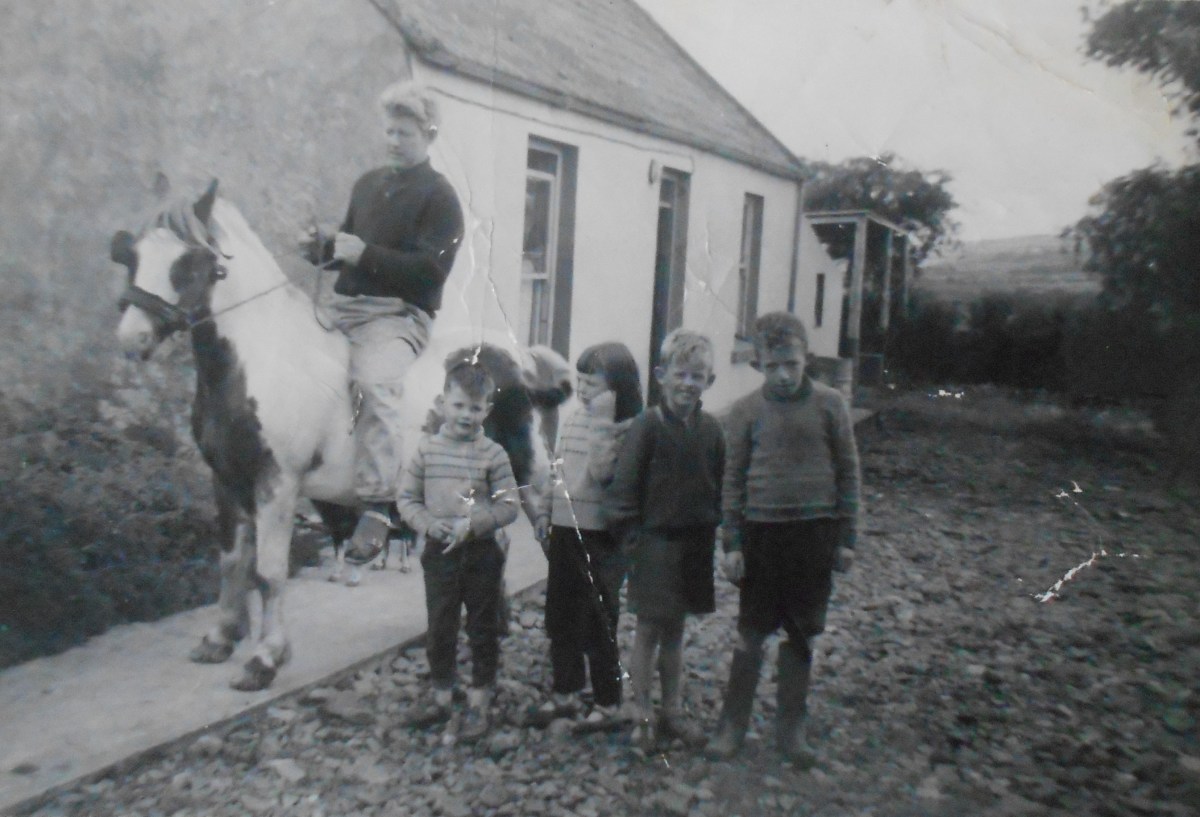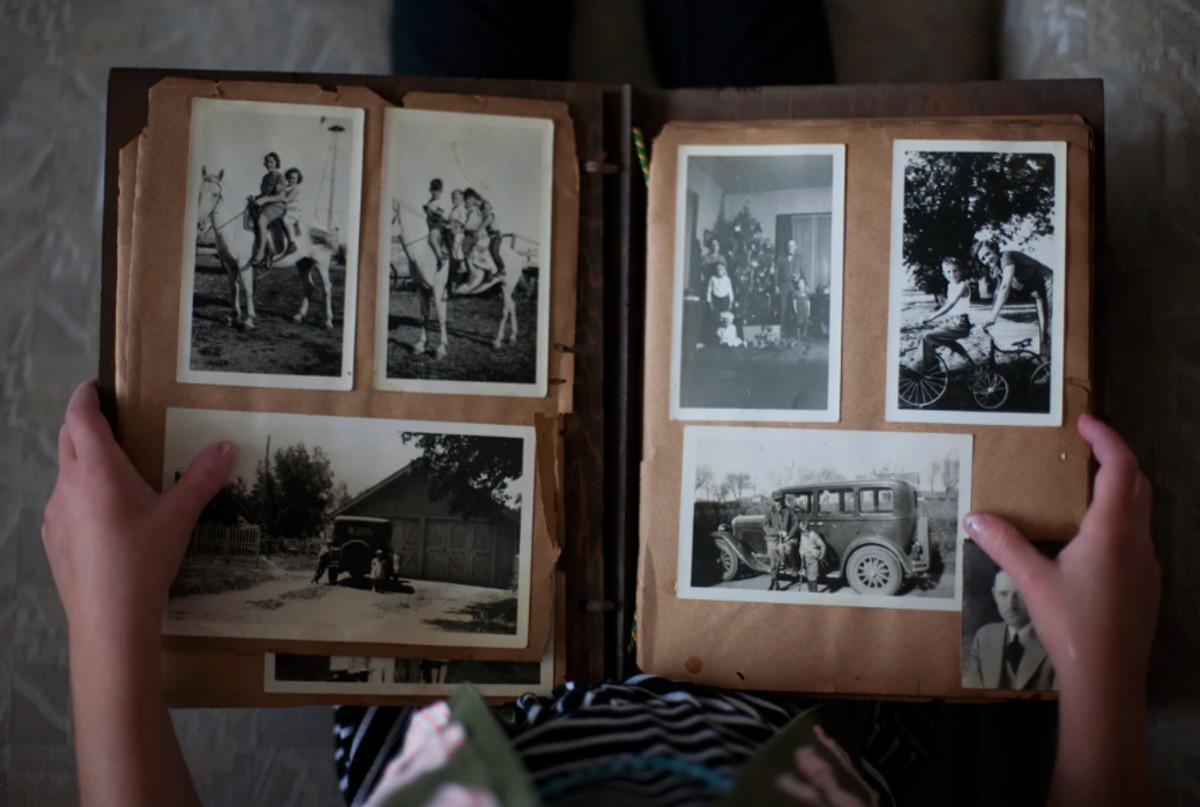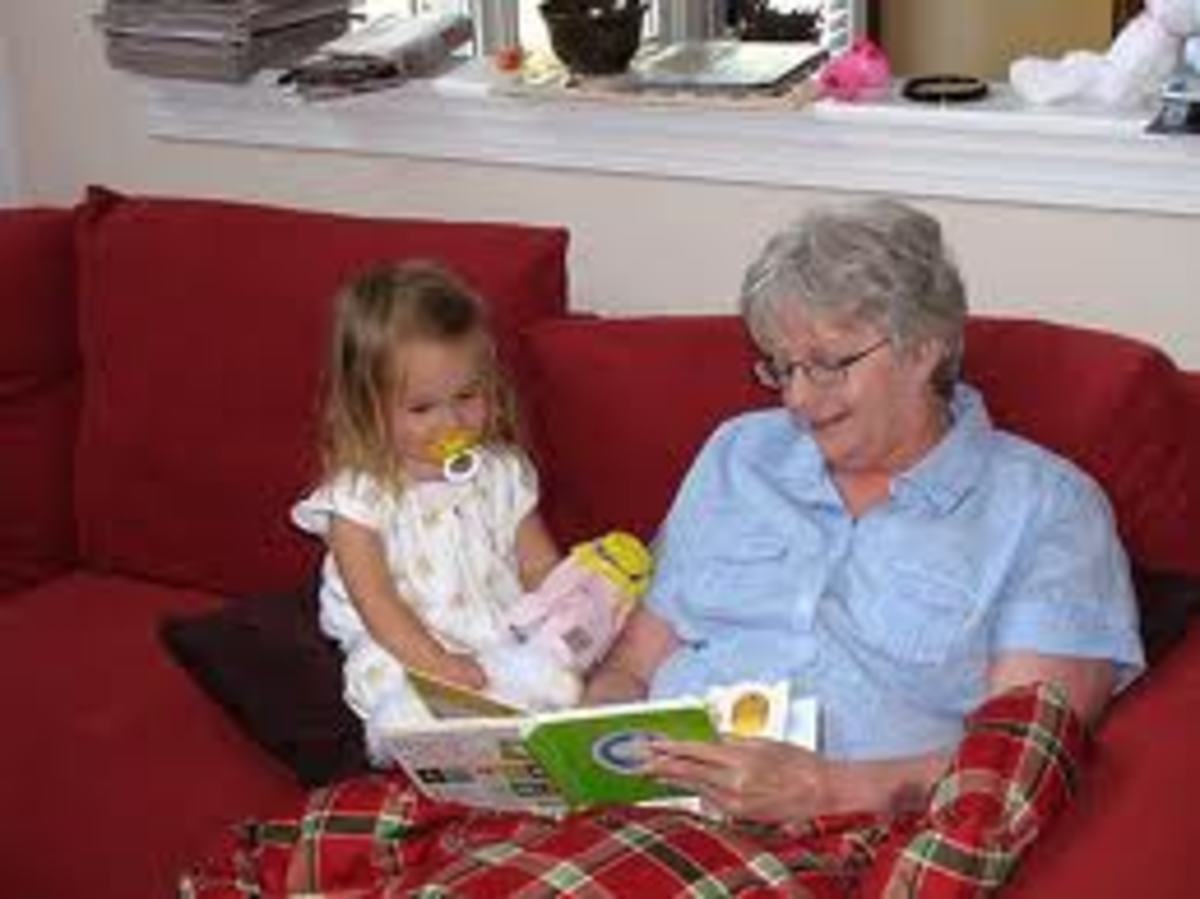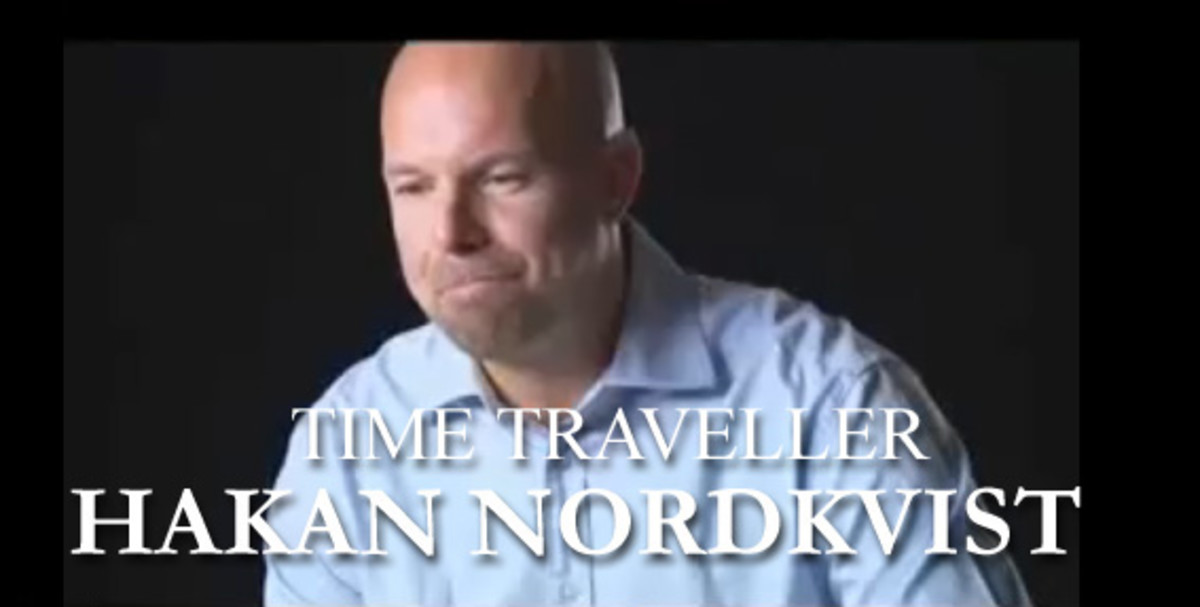Life Happens: Story Series 3
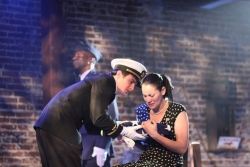
Reframing The Familiar Story
Breaking through stereotypes. Bringing to light hidden messages. Exposing the extraordinary within the ordinary. Reframing stories lets your audience see a familiar story in a new way, a way that may lead to action, and certainly, to discovery. This lens will tell several stories that have been "reframed".
How long should a memory last? How long will I? What happensto all of us, at the end of the line? Will anyone remember me? Will you?

GENERATIONS
A Story from Sanford, Florida and Newport News, Virginia
My line stretches back farther than there is room to show, and my story goes back longer than modern English has been recorded. There have been attempts to erase the history of my line from memory. First by forbidding our old language to be spoken. Then, by forbidding our new language to be written. But memory wants to live on, doesn't it? It is tenacious like that, despite the obstacles, despite the omissions, memory will find a way if there is a willing partner, and my family is just as tenacious.
From the time I was a child, they have appeared before me, all of them, my lineage. My mother and my father remembered them to me, almost conjured them for me so I could see them, if not in the flesh, then in my mind's eye. My line is so long, reaching so far back, it seems such a distance between us, between Sanford and Cameroon, between now and then. I will shorten it, and begin in America.
The first member of my family to live in America was brought to Isle of Wight County, Virginia. He was on a ship that first made port in Barbados, after having been taken from Cameroon in 1632. We were a First Family of Virginia, but instead of appearing on a gilded plaque with other noble founders, the only register our name appears on is that of goods traded. But he remembered his name and his family in Cameroon.
After homesteading in Isle of Wight for two generations, his grandchildren were moved to Greensboro, North Carolina. And they remembered Cameroon, and Barbados and Virginia. They remained in Greensboro, continuing the line, until the Civil War and emancipation. There was a splintering of the family at this point, to Florida. But they remained in touch, because even though it was forbidden on the plantation, they learned to write. They wrote letters and found each other over time. And they remembered. Cameroon, Barbados, Isle of Wight, Greensboro, Fernandino Beach.
My great-grandfather was born in Fernandina Beach, Florida in 1860. My grandmother was born there in 1893. In 1913, she took a steamer to Sanford for a visit, and met my grandfather. They married in 1914 and lived on Hickory Avenue until1987, when my grandfather passed away. He'd been the only tailor in Sanford, and made suits for well to do white men who were judges, lawyers, doctors and bank presidents. My father, though from a poor family, wore tailor made suits when he attended FAMU.
Education was the tool my generations kept sharp and passed on, and that tool was passed on through the generations, to me. I was not the first in my family to graduate from college. I was the first to receive a PhD. I then settled here, retired, never married. And I remember. Cameroon, Barbados, Isle of Wight, Greensboro, Fernandina Beach, Sanford. I look back at my line, and I know them, every one, who they were, where they came from. I remember. And I am the last of my line, carrying our blood, and I have no one to remember me, in Sanford, from Cameroon. I look to the future and there is no one there looking back at me. How long should a memory last? How long will I? What happens to them, to all of us, at the end of the line? Will anyone remember them? Remember me? Will you?
Change happens for any of us when what we know is cracked open, and new possibilities to the norm are seen.
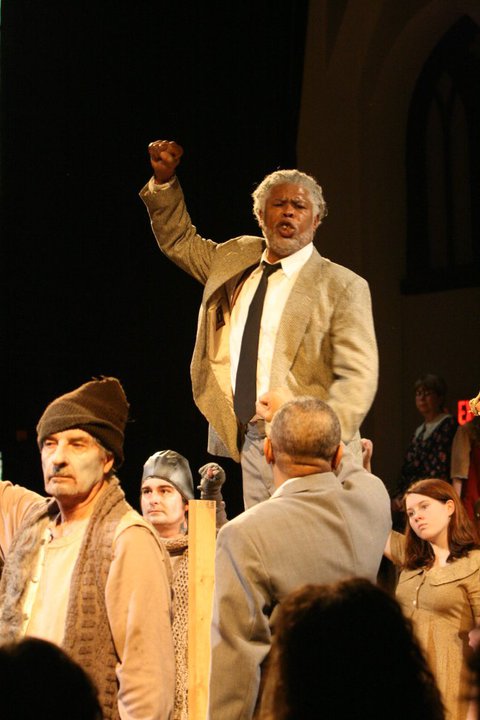
Why Is Reframing Important in Storytelling?
Reframing is one of the most important things I do in my work. As a Community Performance playwright, my job is to go in to a community, listen to people tell their stories, and then write a play-- not just about the stories I have heard, but also the possibility, the hopes, that lie within the stories. As a writer, my job is not to give a simple reflection. All a community would need for that is a giant mirror, or perhaps an aerial photograph. My work, my joy, is to listen to stories, and then "reframe" what it is that I'm hearing, so the people in the community can hear their story in a new way, that perhaps sheds light on some new ways to live inside of their story, and new ways to see and experience themselves.
Change happens for any of us when what we know is cracked open, and new possibilities to the norm are seen. Reframing means taking a story, and shifting it, slightly, and telling it through a new lens of focus. Obvious shifts are those that go from victim to hero, such as a cancer patient seeing herself as someone living with a disease, instead of dying from it. Archetypal examples of reframing include the "martyr", whose story shifts from someone wrong and persecuted to someone strong and righteous. The story doesn't change-- the cancer patient still has cancer, the martyr is still dead, but how we choose to see, hear, and tell those stories has made a shift. That shift changes our understanding of these people and events. As we come to understand that shift, and how making that shift can enhance our understanding, it helps each of us to discover ways in which we can shift our own stories, and see new possibilities in our circumstnces. Those circumstances we live in may never change, but the way we live through them and experience them can. If we are the story we tell, then we have the power to cast ourselves as hero instead of vicitm, as leader instead of follower, as do-er instead of watcher. We can activate our presence in our own stories by shifting ourselves into a new way of being.
My work in creating community performance plays and vignettes helps people and communities see anew their circumstances. The results have been profound and life-changing, and in some cases, life-saving. In this lens, I give several examples of real-life stories, which have been reframed. In some instances, I even give the real-life outcome of this reframing, through pictures, stories, and interviews. Now, on to the stories...
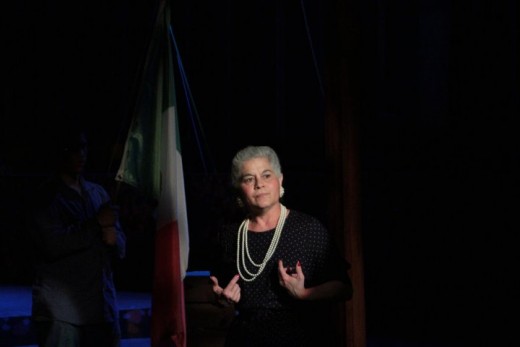
I Am Home
A Story From Jonesborough, Tennessee
My father worked in the fields and we moved with the work. I went to three different high schools in four years, and graduated from Davey Crockett. I'm not in any of the pictures in any of yearbooks, because I'd move before they took the pictures. And when I got to the other high school, the pictures were already taken. I was the amazing invisible Mexican.
I came to Jonesborough when I was 8. I didn't want to, but I didn't have a choice. My parents came for work. I was undocumented for a long time. I am sorry about that. But I was. I am a documented worker now. I'm still not a U.S. citizen yet. I'm not eligible to even apply until May of 2012, but I've got that day marked on my calendar. As soon as that day comes, I will turn in my application.
I have a job at Catholic Charities as a Board of Immigration Appeals liaison. I think I can help people. I know the frustration of not being able to do anything. I know what it is to go through life invisible. I remember one time I bought a coat and I thought it would fit, but it didn't so I tried to return it. It had the tags and everything, but I lost the receipt. The clerk tells me, you didn't get this coat from here. And I said, I did, it still has the tags on it. She tells me, I'm not giving you any money for this. You better leave now. She even threatened me to call the police. I was undocumented. I had no right to return the coat. I had no voice. I had no power to do anything.
Today, I have more power than my parents, who don't speak English. They work so hard. I can't tell you how it makes me feel when I hear people say, "Tomato pickers just don't want to learn English". Believe me, when you've been in the fields all day, when you've been picking strawberries or tomatoes all day, you don't learn English because you're tired. All you have to do is get your strength up for the next day, and that's all you're thinking of. Does anybody want to come home after a hard day of work, then clean the house, feed the kids, and sit down for a few hours and learn a language? Where do you fit it in? Especially when you have to work 13 hours a day? And why do they work 13 hours a day? Because if anyone complained about the long hours, all it would take is a phone call.
Let me stop for a moment and say, it was like that. Yes. And it is changing. Especially here. Especially now. Because now, there is help to get people documented. To help people become citizens and to help explain the laws and the rules. Before, we were on our own. But now, we're not. Things are changing. All we can do is keep pushing forward. We can't let what happened in the past pull us back, too.
I remember our first heritage day. We had a migrant march, and the town looked so beautiful with the flags and everything. The people in Jonesborough were very welcoming. We had two or three ladies scream, "Go home!"
Yes. And I'm sure there are two or three Mexicans who are mean spirited too. Sometimes it's easier to be mean when you don't understand something. But do you know what happened to me in that moment? In that moment, I realized, I'm standing here, and they can see me. And everyone else on the street, they are cheering for me. And I am not invisible anymore. In that moment, I was no longer looking for home. When they told me to go home, I looked around and said, "this is my home" It is beautiful, and different than anything I was ever used to. It's a different culture and a different language and a different color, but you know what? "I am home!"
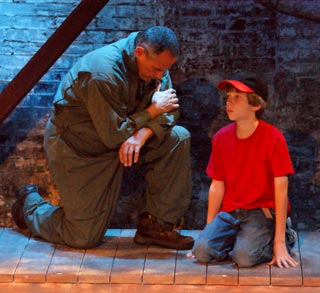
Touch and Go
A Story from Sanford, Florida
When I was young, Sanford was a sleepy little town. There were three things for a kid to do. Go to the ball game, fish in the river, and this: We'd ride our bikes down to Sanford Avenue, go right at 25th, and then right on Melonville, stop at the fence, and 75 yards away was the end of the runways. We'd watch out in the sky, and see a little dot of light. Like train watching- light is all you could see. But unlike the trains, those planes come in faster than anyone ever expects. First you hear the whine of the jets, then a roar, and then they'd come down and touch the runway. And if that wasn't exciting enough, they'd immediately, "Whooosh!" Hit their engines and just roar off back into flight. This is called touch and go. They practiced for carrier landings. It was fascinating to watch, it was so close. We were the luckiest kids in the world.
As we got older things changed a bit. I lived in Pinecrest, the new area near the air base. Most of the families were navy families, mine wasn't. When I started high school, the war started. The touch and goes weren't just for a "what if" situation. They were practicing for the real thing. More pilots than ever were running touch and go's. My high school was right in the landing path. Sometimes, the teacher stopped class for 20 seconds at a time, because the roar of the engine was so loud. One day, I was in chemistry class. All the sudden a plane came down at tree top level, way too low. It was wagging like a sick animal, and we knew something was wrong. Someone ejected. It was the navigator. We ran to see if we could find him and looked for the plume of smoke, we knew for sure that plane was going to crash. But there wasn't a plume. The captain, it was Captain Charles Smith, he stayed with the plane, because it would have gone right into our school. At the last minute, he got the engine going again and crash landed at the base. All of us kids knew the palmetto woods and trails, so we immediately found the navigator as the navy people came. He looked at me. He had a cigarette. I ask, "Are you OK?" and he says, "Well, my feet kind of hurt. You got a light? I guess not."
Touch and go went from sheer excitement to really recognizing the seriousness. That pilot stayed with the plane and risked his life. And things got more serious as the war progressed. We'd see cars arrive at people's houses, and we'd know that one of the men had made the supreme sacrifice. I wanted to talk to Captain Langston about it, but he always wanted to tell jokes. He was the first pilot I got to meet, and he ended up moving to my neighborhood. A lot of fun. He flew the first Vigilantes. He took us for rides in his '39 coup. He and his wife bought a house right down the road from where I lived, and he said after he's done with the war and out of the Navy, he's gonna settle down here in Sanford. He said it had just the right amount of not too much.
I mowed his lawn for him and did things around the house for his wife when he left for his mission. He wrote some letters and sent pictures of the new aircraft. I was mowing his yard, the side yard. And the cars drove up. I left the mower right there. I didn't want to see them go to the door. I ran home to get my mom. And another car drove up.
It hit home for me. How people go off in these big war machines. And sometimes, they don't come back. The touch and goes were not the same anymore. Sanford was not the same anymore. And Captain Langston was gone.
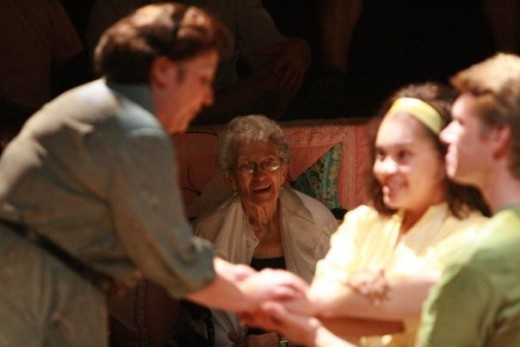
Nita's Story
From Lavonia, Georgia
There have been a few times in my work where I could see, right in front of me, the effect that story, and reframing individual's stories, has had on people. NIta is a recent example.
A story was gathered from NIta, for possible use in the next play for the town of Lavonia. I didn't just like Nita's story, I loved it. It was beautiful, and tragic, though at the time it did not have a particularly happy ending. Not all stories have happy endings, we know this as humans. And, as humans, we find a way to cope with those endings as best we can, through family, relationships, through spirit, and through story. And reframing that story.
I reframed the story for this play in a way that the ending was not changed, her child still died, but through carefully examinig some of the elements within her story, like how much her daughter was a free spirit, like a butterfly, and how after her death, yellow butterflies began to appear near NIta, I wove a story that reframed the death and brought a sense of resolution, something Nita had struggled with for years. in the story, Nita, the Character, experiences contact, closure, and resolution. (We, as an audience, want this, too. it is an important step in storytelling.)
What i forgot to mention is that when Nita shared her story, she was in critical care in the nursing home. I asked the staff to let her know I had chosen her story to use in the play. The staff, while very happy to know this, told me they didn't think she'd live long enough to see the play. They told her that her story was going to be used, and she said she was going to make it for the opening of the show. She fooled everyone by indeed, holding on until the pay opened. She attended. That is her, the older woman in the wheelchair, watching this scene in the photograph. In this scene, she is watching the actors playing her daughter, son-in-law, and herself, during the moment they announced they were engaged. You can see the joy in Nita's face. That same feeling was there, in the end of the play, when her daughter returns to her, as a butterfly while she works in the Victory garden the two of them used to tend. Nita came to the production again, 4 weeks later. And I remind you, that she was not expected to live to see the first production. That was two and a half years ago. The other day, I saw Nita at the Mennonite Restaurant, being taken out to lunch for the day with a family member. She is vibrant. She is back. She told me it was because of the play, and seeing that story the way it was retold. She said "It borught me back".
As story tellers, we have such a responsibility. And as family members, we have the same responsobiltiy. You never know how important it may be to someone to remember them, or remember someone they love. It could be life changing. And life saving.



